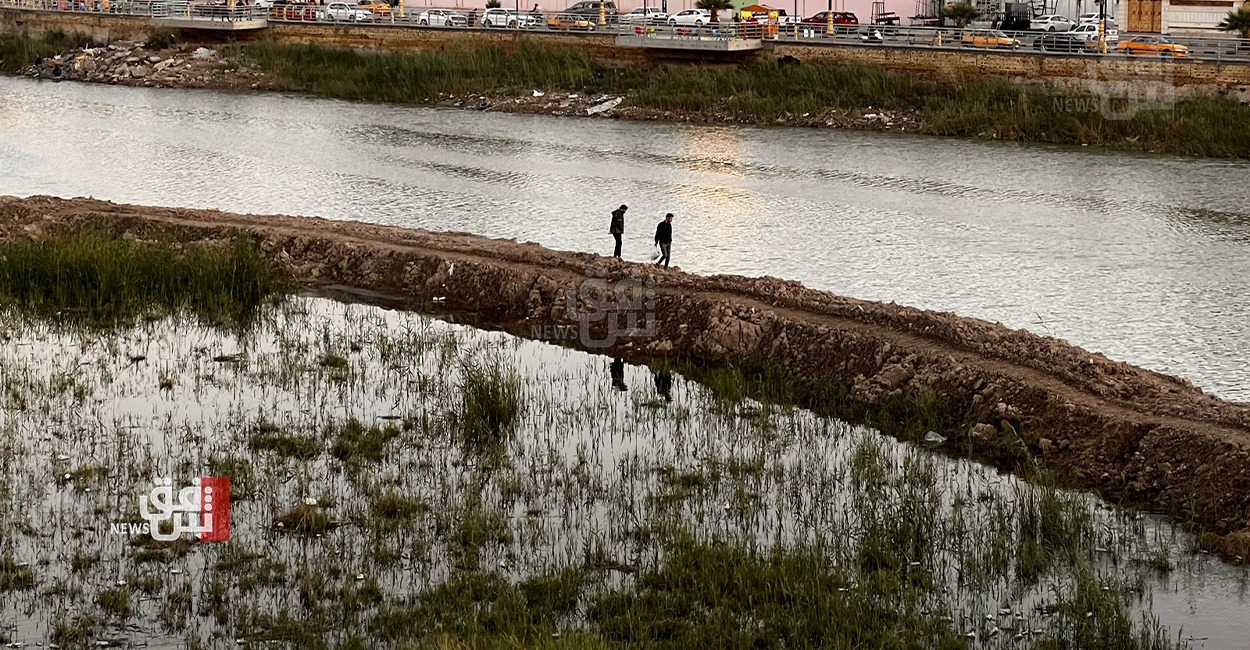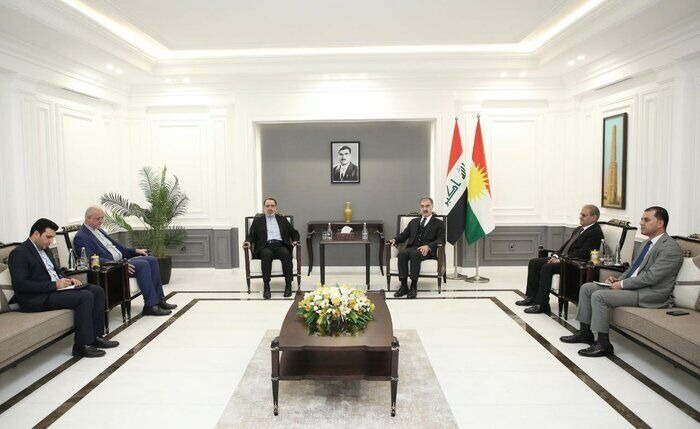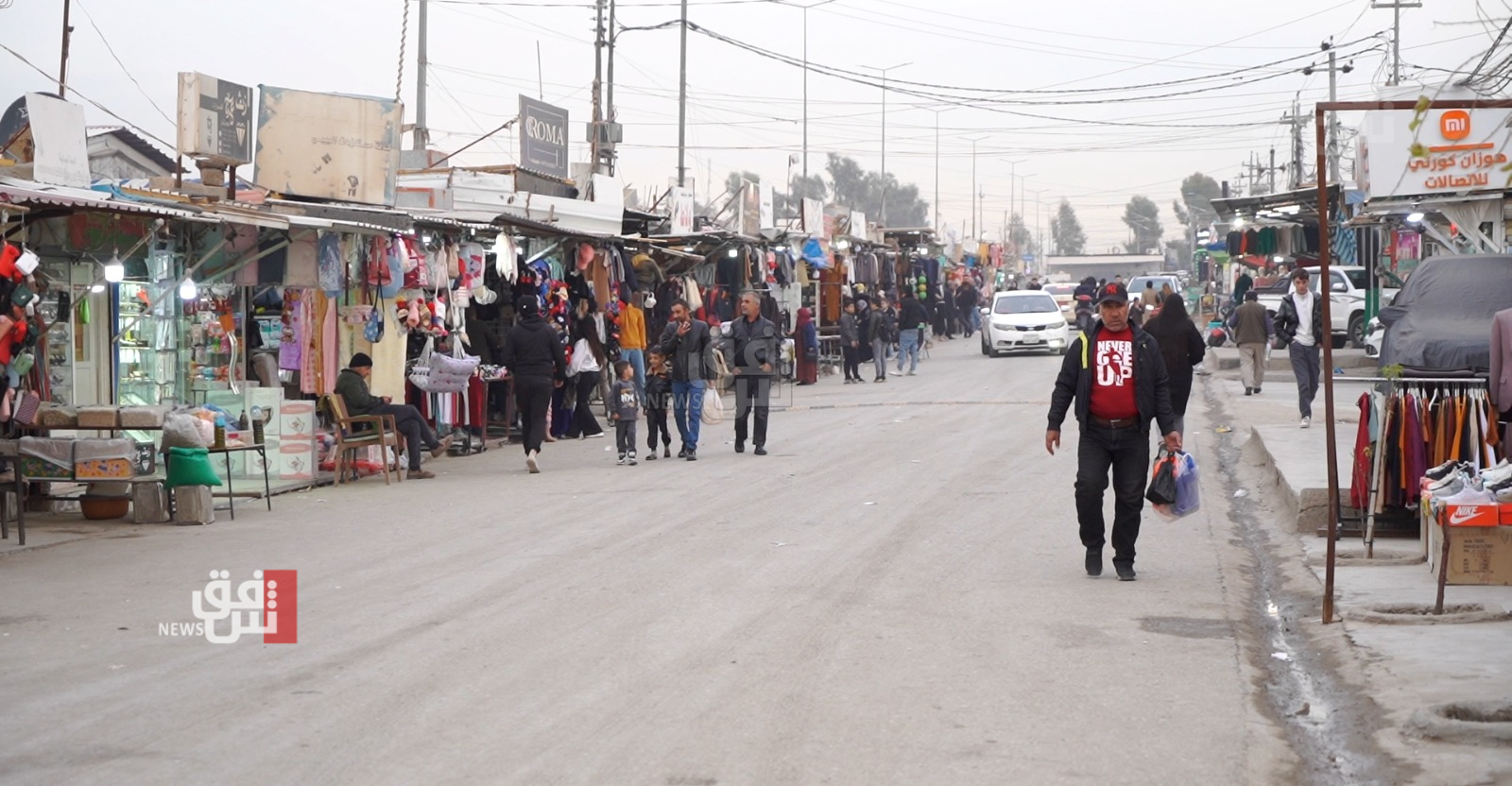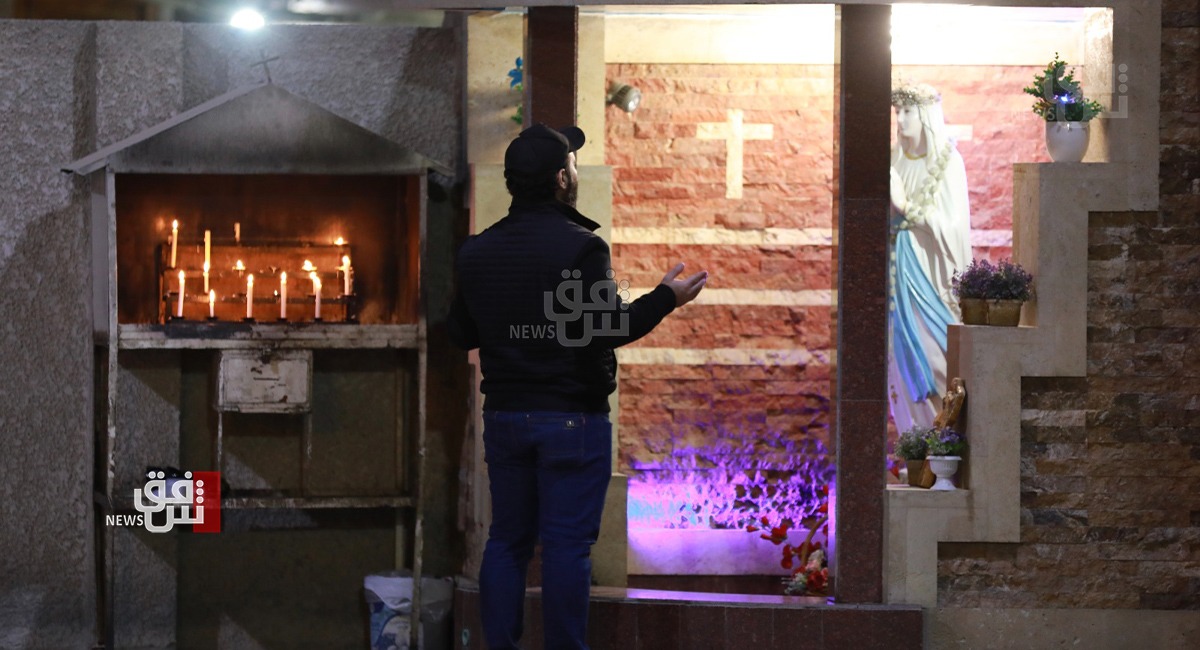Sulfur smog: How water mismanagement is choking Iraq

Shafaq News/Once known as the "Land Between the Two Rivers", Iraq's ancient landsare now struggling for breath. The Tigris and Euphrates, the lifelines ofthriving civilizations, are now shadows of their former selves, shrinking asthe country endures a crippling water crisis.
The skies,once clear and bright, are now veiled in smog, and the air carries the acridscent of sulfur. This is the painful reality for millions of Iraqis, from Baghdadto Basra, who wake up each day to a world where pollution, drought, anddesertification have become constant companions.
Decades ofconflict and neglect have ravaged the country's environment, leaving its peopleyearning for the days when the rivers ran free, the soil was fertile, and theskies were clear.
AlarmingLevels of Pollution
Pollutionhas not spared any corner of the country. From Basra to Kirkuk, Mosul to Najaf,entire cities are shrouded in toxic haze. Social media is flooded with imagesof Iraqi cities barely visible through thick clouds of pollution, while worriedvoices plead for action.
The"Green Iraq" environmental observatory has sounded the alarm, warningthat hazardous materials, particularly from the burning of high-sulfur oil inpower plants, are poisoning the air across the nation. The health of vulnerablepopulations—children and the elderly—hangs in the balance, as the sky darkensnot just over Baghdad, but over an entire nation.
A BBC reportranks Iraq as the second-most polluted country in the world, only behindRussia, with an unimaginable 18 billion cubic meters of gas burned every year.Iraq’s overall pollution index, standing at 73.59%, reveals a crisis that is aswidespread as it is devastating. Air pollution, a once-distant concern, has nowbecome a suffocating reality for millions across the country.
Worsening Water Crisis
Beyond thepoisoned air, Iraq is also facing a desperate battle for water. The rivers thatnurtured its people for centuries are now shrinking, choked by mismanagementand dwindling flows from neighboring countries.
Water andagricultural expert Tahseen Al-Moussawi explained that “the rising sulfurdioxide emissions are tied to stagnating water levels, a tragic reflection ofhow deeply this crisis runs.” Desertification has begun to creep over the landlike a slow-moving shadow, stripping it of its fertility and erasing thebiodiversity that once thrived.
In someareas, the water has become unrecognizable—polluted with untreated sewage andindustrial waste—rendering it unsafe for even the most basic human need: drinking.
Al-Moussawished light on the crisis, “Iraq needs 50 billion cubic meters of water everyyear to sustain its people and land. Yet, over the past four years, it hasreceived less than half of that—just 20 billion cubic meters. This devastatingshortfall has pushed Iraq to rank 23rd in global water poverty, but statisticsalone cannot capture the human cost.”
For millionsof farmers and herders, water is more than a resource—it is the pulse of theirlivelihoods. As the rivers run dry, entire communities are watching their wayof life fade away, forced to abandon the soil they have worked for generations.
ClimateChange and Agricultural Decline
Drought andglobal warming have gripped the country, while the dwindling waters of theTigris and Euphrates rivers have all but crippled its agricultural heart. Inregions like Diyala and Al-Anbar, the fields that once provided for generationsnow lie barren, forcing families to leave behind their ancestral homes insearch of survival.
The impacton rural communities has been devastating, unraveling the social fabric thathas long been tied to the land.
As oxygenlevels in the rivers drop, mass die-offs of fish have only added to thedespair, pushing fish farmers deeper into economic hardship.
Legal andEnvironmental Protection Gaps
Iraq'senvironment is protected on paper, but in reality, the laws meant to safeguardits land and water often go unenforced. Law No. 27 of 2009, designed to protectthe environment, is a promise unfulfilled as rivers across the country—whetherin bustling cities or remote villages—are choked with industrial and hospitalwaste.
This failurein waste management feels like a betrayal to the people who rely on theserivers for life, with toxic waters now endangering not only human health butalso the fragile ecosystems that once thrived. The rivers, once symbols of lifeand sustenance, now carry pollution downstream, a visible reminder of neglectthat affects every corner of the country.
Desertificationand Reforestation Efforts
Over 60% ofthe country has fallen victim to desertification—a heartbreaking consequence ofdwindling water supplies and rampant deforestation.
Yet, amidthis desolation, there are glimmers of hope. Reforestation initiatives, such astree-planting campaigns, are being carried out by those determined to restoreIraq's lost green cover. However, these efforts, like the trees themselves,require water to grow.
Omar AbdulLatif from the Green Iraq observatory emphasized that “without sustainablepractices, such as drip irrigation, even these hopeful acts may wither away.The fight against desertification is not just about planting trees—it is aboutnurturing the future of a land that has provided for its people for millennia.”
EnvironmentalMinistry's Response
In the faceof suffocating air and rising concern, the Iraqi Ministry of Environment hasresponded with a sense of urgency, holding a critical session chaired byBaghdad’s governor to seek solutions for the capital’s growing pollutioncrisis.
Reflectingthe government’s commitment to tackling this pressing issue, Prime MinisterMohammed Shia Al-Sudani has issued directives to form a specialized ministerialcommittee, tasked with developing immediate solutions, and within days, itsfindings will be in the hands of the Prime Minister.
LouiAl-Mukhtar, spokesperson for the Ministry of Environment, shared with ShafaqNews Agency that air samples have already been collected, and the committee isworking diligently to finalize a report that will outline both immediateactions and long-term strategies to restore Baghdad’s air quality.
Earlier, theMinistry had shed light on the sources of this toxic pollution—black oil burnedin power plants, fires in unregulated landfills, and the fumes from asphalt andbrick factories that darken the night air.





